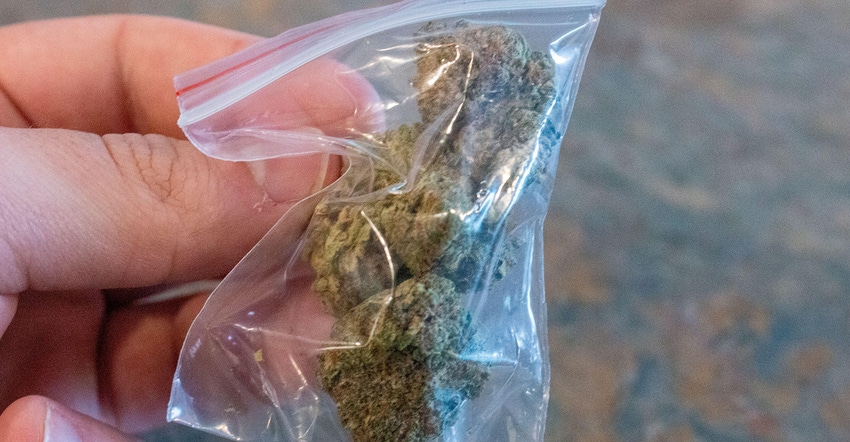Colorado's Plastic Pollution Reduction Act Bans Single-Use Plastics, Polystyrene Containers and Enacts Retail Bag Fee
Colorado’s regulatory environment around single-use plastics has done a 180 since just a few years ago when jurisdictions were prohibited from restricting use of any of these materials. The Plastic Pollution Reduction Act (HB21-1162), which passed in 2021, lifted that preemption, but the policy went further.

Colorado’s regulatory environment around single-use plastics has done a 180 since just a few years ago when jurisdictions were prohibited from restricting use of any of these materials. The Plastic Pollution Reduction Act (HB21-1162), which passed in 2021, lifted that preemption, but the policy went further.
The bill has three more core provisions: 1) It obligates retailers to collect a 10-cent fee for every single-use plastic bag they distribute (effective Jan. 1, 2023). 2) Plastic carryout bags will be banned outright at retail establishments, while polystyrene containers will be banned at restaurants and wherever prepared, package foods are sold (beginning Jan. 1, 2024). 3) And individual jurisdictions will be free to tighten the reigns further by implementing their own ordinances around these packaging applications and other plastics (beginning July 2024).
The new state law allows some exemptions, namely to all Colorado restaurants, who will still be able to distribute plastic bags to safeguard against food leakage through carryout containers. And retailers with three or less stores in the state who are not part of a franchise can still give out plastic bags. The rest of the stores have until June 2024 to use up their existing inventory.
Over the years there’s been a crusade across Colorado to eliminate single-use plastic bags, with some communities pushing past the legal boundaries of the preemption that pre-dated HB21-1162, whether boldly banning plastic disposable bags or setting some level of restriction on their use.
The anti-single-use plastic movement gained steam as environmental advocacy groups launched campaigns.
From what Elizabeth Chapman, executive director Recycle Colorado, hears, communities who have invested in reducing plastic trash are happy with the 2021 policy, especially the new freedom to write their own, stricter ordinances.
“There are a number of communities through Colorado who are excited to have that in their toolbox to help meet their environmental and sustainability goals,” she says.
A few jurisdictions have already moved to pass more stringent policies. Some have banned plastic bags ahead of the required date. Some are imposing a higher fee than mandated by the state for paper bags that retailers can distribute as a plastic alternative. Others are looking at obliging smaller businesses, exempt under state law, to follow the same rules as larger retailers. A very few are regulating plastic applications beyond bags and polystyrene takeout containers.
Beginning July 1, 2024, Breckenridge prohibits the sale of single-use plastic water bottles in all businesses and bans plastic service ware. Telluride is clamping down on other plastic packaging applications too.
Speaking about the industry, Chapman says, by and large recyclers will be happy to see less film and polystyrene in the consumer stream because neither are high-value materials and they have their problems.
“Polystyrene is not only unmarketable but carries food residue, so there is enthusiasm for those materials to be gone. And film bags are a frustration for materials recovery facilities (MRFs) because they conceal items that are not recyclable, get tangled in sorting machines, and slow down production,” she says.
Though the patchwork of restrictions across the state on materials is alarming to a number of Recycle Colorado members who have historically recovered other commodities that could face scrutiny.
“If only the most problematic plastics are targeted, I think in general the recycling community is in support. If the desire to eliminate plastic products expands beyond bags, that will potentially cut into high-quality plastics that MRFs [and processors] rely on as income. And we will not have as unified an opinion. But we do not know how it will play out yet,” Chapman says.
Eco-Cycle, a nonprofit that advocates for zero waste policies and programs and its coalition partners worked on the bill language, including helping to determine what to target.
They homed in what Randy Moorman, director of Community Campaigns Eco-Cycle, calls the “worst of the worst plastics,” –thin film bags and polystyrene containers break down easily into micro plastics that get in water, food, soil, people, and animals.
And they looked at what other jurisdictions with similar policies have done.
“One big takeaway we knew going in is you can’t just ban plastic bags and be done. We learned of a community that tried that early on and found a huge uptake in paper bag replacements,” he says.
They too have environmental impact, taxing natural resources [forests and water] and are responsible for high greenhouse gas emissions during transport, as the material is heavy.
They proposed imposing a fee on plastic before phasing it out altogether, along with a fee on paper bags to discourage a mass transition to paper, with the paper bag fee continuing indefinitely.
“By beginning with the fees, people got the message that restrictions are coming. And it helped get businesses on board because the fee is split between them and municipalities [60% goes to local governments to invest in recycling/materials recovery initiatives, and 40% to businesses to implement a fee collection system],” Moorman says.
Equal consideration went into the last policy piece— rescinding the preemption so local governments can implement their own plastic waste reduction laws. The thought was that the best plan depends on the community.
Each jurisdiction has different composting and recycling resources that will ultimately determine their capabilities. This will guide their policy decisions, as will what matters to the community, Moorman says, commenting he’s seen the best ideas form at the local level. He points to ordinances whereby straws are available on request rather than banned, a policy that has come from hearing out concerns of residents with disabilities.
The retail and food service communities have not been particularly receptive to HB21-1162, arguing for one that they will no longer be able to offer customers what they see as a courtesy.
Plastic bags could be managed in better ways, says Grier W. Bailey, executive director, Colorado Wyoming Petroleum Marketers Association (CWPM), a wholesale and retail fuels/convenience store association.
“Part of the intent of the Colorado law was to hit the shopper at checkout, to change behavior. From that perspective maybe it was somewhat effective. From an environmental mitigation solution perspective, I don’t think fees do a lot at the point of sale or local community level,” he says.
He argues recycling or diversion programs are more effective from an environmental standpoint at the state level where the responsibility is on the producers, rather than asking local communities and retailers to “piecemeal solutions.”
Some retailers have stepped in with their own policies; Walmart stores in Colorado stopped offering single-use plastic bags beginning January 1, 2023, a year ahead of the ban and stopped carrying the allowable paper bags too. Kroger made a similar proactive move.
Colorado joins eight other states on the plastic bag ban bandwagon: California, Connecticut, Delaware, Hawaii, Maine, New York, Oregon, and Vermont. All along, the debate heats up over who or what to restrict. To date more states have shot down bans than have said no to throwaway plastic bags.
About the Author(s)
You May Also Like




